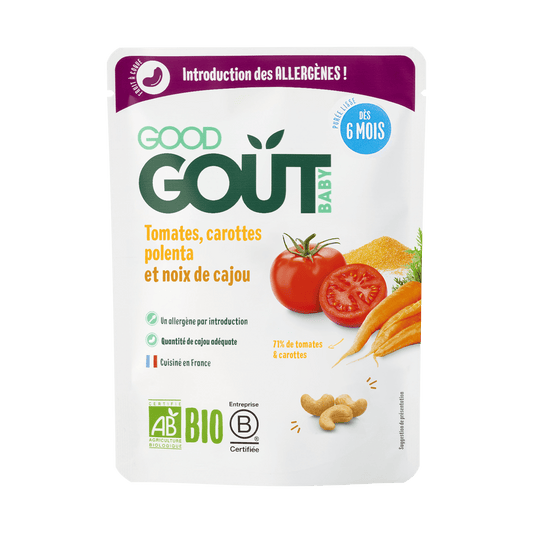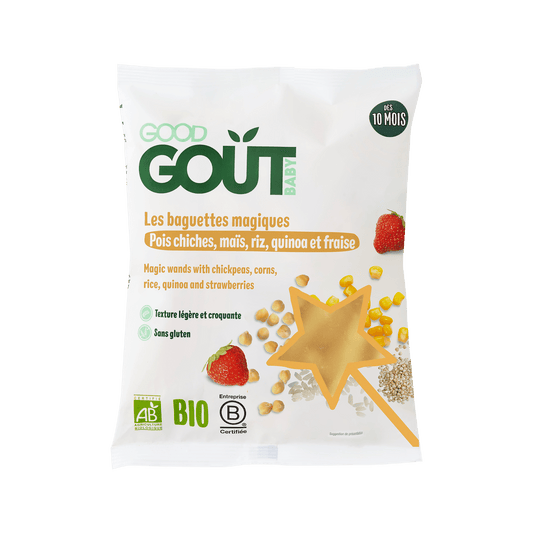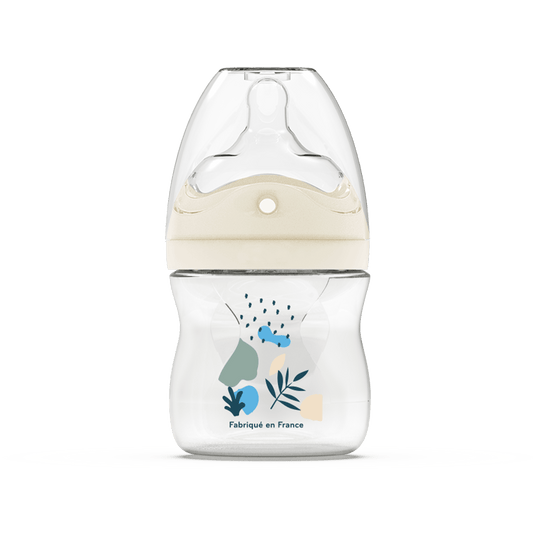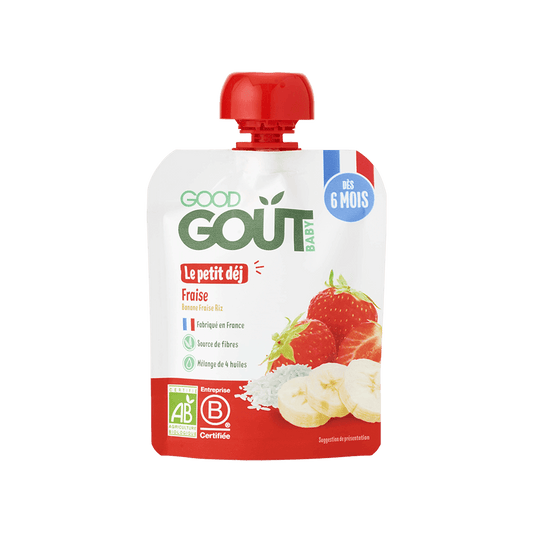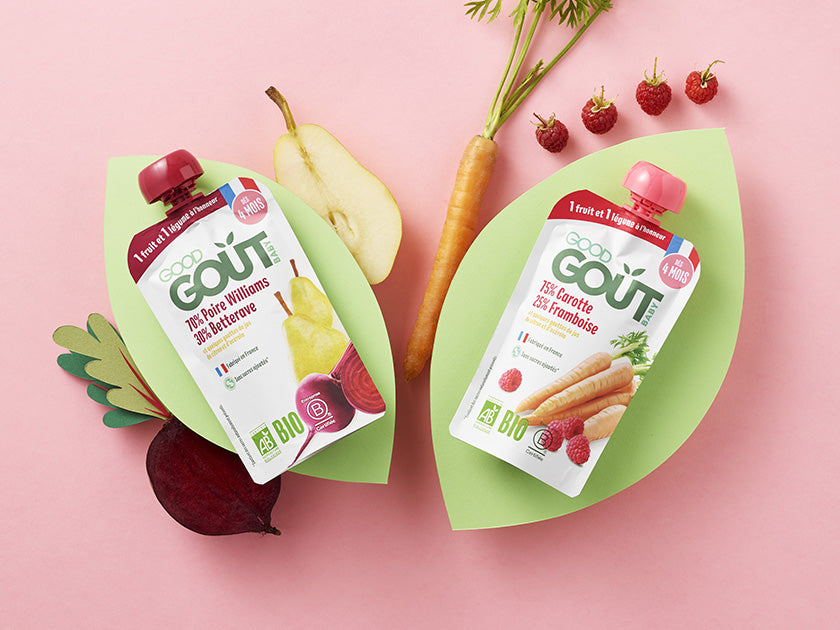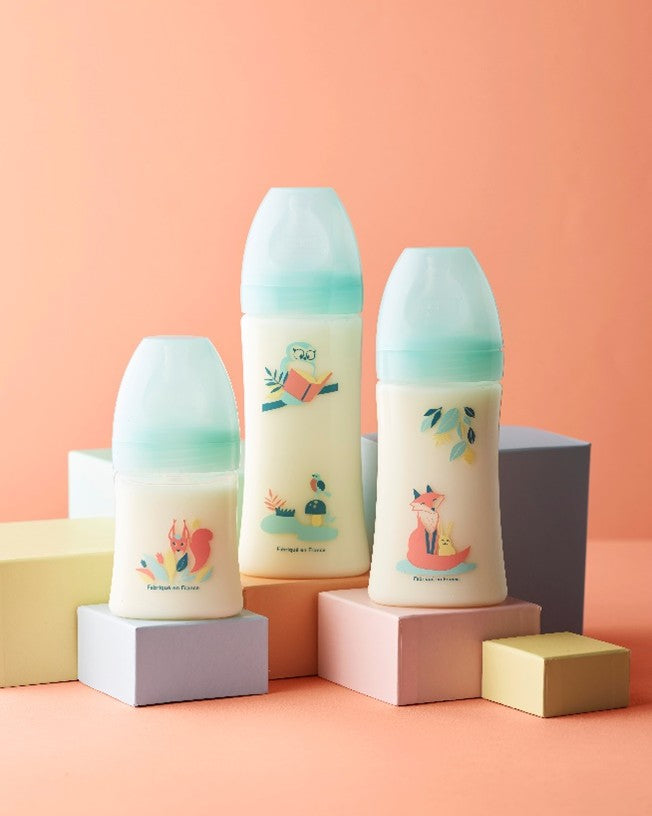Important notice: Breast milk is the ideal and natural food for every infant: it is best suited to their specific needs. When using infant formula, when the mother cannot or does not wish to breastfeed, it is important to scrupulously follow the instructions for preparation and use and to follow the advice of the medical profession.
When you cannot or do not wish to breastfeed, or when the time comes depending on the baby's age or even during weaning, infant milk offers an alternative that suits their nutritional needs, with one prerequisite: choosing it carefully and, above all, knowing when to change infant milk.
We'll explain everything to you, so that the transition goes smoothly for him and for you.
Before changing infant milk 1 , let's first look at its different types
Navigating the different types of infant formula isn't always easy! So, to make your choice, it's important to have the information you need to fully understand their differences and uses.
The first months of a baby's life are very stimulating and their needs evolve as they grow and learn.
While the composition of breast milk naturally adapts to the rate of growth, infant formulas differ depending on the age for which they are intended.
There are three main families of infant milk: infant milk or infant formula for babies from 0 to 6 months , the second-stage milk or follow-up preparation from 6 months to 1 year and the third-age milk or growth milk for older children up to 3 years old.
Their main differentiating element lies in their specific content of proteins, lipids, carbohydrates or even vitamins and minerals, which meets the nutritional needs of babies, in accordance with current regulations.
There is also different infant milk formulas that address functional disorders: Hypoallergenic milks, anti-regurgitation milks, or even specific preparations in case of allergies to cow's milk proteins. These are infant milks placed under medical supervision. They can only be prescribed by a healthcare professional (For more information, contact a healthcare professional).
How do you know when to change your infant milk?
Does your child spit up a lot? Does he cry during meals? Does he have digestive problems or of the symptoms of allergic reaction (breathing problems, skin problems, etc.) 2 Is his transit not smooth and his baby suffers from constipation, or is he showing dissatisfaction?
So many signs that can alert you to a possible need to change infant milk.
First and foremost, the healthcare professional who is monitoring your baby is your best ally in deciding what course of action to take, and he or she will be able to advise you to help you make your choice.
There are several factors that can explain why your infant milk is not suitable or is no longer suitable for your baby.
Each infant milk formula has its own composition, in accordance with current regulations. Relatively significant differences may exist: the type of protein it is made up of (casein or soluble protein), the amount of lactose compared to other carbohydrates and the presence of fiber or starch, thus influence your baby's tolerance to one infant milk rather than another. 3
If your baby is refusing to drink their bottle, it may simply be a matter of taste!
Cow's milk, from which most infant formulas are made, may not be appreciated by your baby. You can then try an infant goat's milk which also provides all the necessary nutrients, and always in accordance with current regulations.
Some tips for changing infant milk
Once you have made your choice to change your infant milk, Start the transition gently . You can replace one bottle of the day with the new formula. Give your baby time to get used to the taste and texture. Then, little by little, you can continue to gradually replace the bottles of the original formula with those of the new formula.
During this phase of changing infant milk, your baby may experience some digestive discomfort. This should return to normal after a few days.
In any case, don't forget that your healthcare professional is there to support you and advise you on how to change your infant milk with complete peace of mind!
To your testimonies!
We hope this article has answered your questions.
If you have any questions, or would like to share your experience with us, please do not hesitate to write to us at contact@biostime.fr or in private message on Instagram@biostime.fr.
* in accordance with current regulations
1 Ameli, Your baby's first months: milk only, 06/24/2024, available here: https://www.ameli.fr/assure/sante/themes/alimentation-0-3-ans/premiers-mois-lait-uniquement
2 Mpedia, CMPA: Cow's Milk Protein Allergy, 05/25/2021, available here: https://www.mpedia.fr/art-aplv-allergie-proteines-lait-vache/
3 Mpedia, Should Baby Drink Exclusively the Same Milk? Accessed 06/06/2024, available here: https://www.mpedia.fr/qr/bebe-boire-exclusivement-meme-lait/


